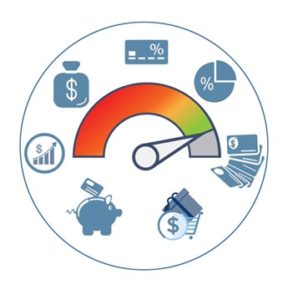National nonprofit American Consumer Credit Counseling explains eight credit card terms all consumers need to know
Boston, MA – September 18, 2018

“When opening a credit card, it is important that consumers are credit smart and understand all the responsibilities and terms that come with it,” said Steve Trumble President, and CEO of American Consumer Credit Counseling. “Credit cards are an excellent way to build credit if they are used responsibly, which is important when the time comes to make a big lifetime purchase, such as buying a house.”
According to a recent study by ValuePenguin, a total of 41 percent of all households carry credit card debt, with an average of $5,700. The study also found that the total U.S. consumer debt is $3.9 trillion. Averaging over $8,000, the Northeast and West Coasts hold the highest average credit card debt in the U.S.
ACCC explains eight common credit card terms all consumers should know:
- Credit Score – A credit score is a three-digit number that indicates how trustworthy a consumer is for a credit card or other loans. Credit scores range from a low of 300 to a high of 850. The higher the credit score, the more trustworthy the consumer.
- Annual Fee – Some credit card issuers charge an annual fee for use of the credit card.
- Annual Percentage Rate (APR) – The APR is the interest rate consumers are charged on their credit card balance throughout the year. Although this is calculated daily, any interest charged is forgiven when the balance is paid in full each month.
- Minimum Payment – The minimum payment is the least amount a consumer must pay on their bill each billing cycle without defaulting.
- Credit Line – A line of credit is the amount of money the card issuer will allow the consumer to borrow.
- Secured Credit Cards – Secured credit cards are designed for those with little to no credit. These require a secured payment to be used as collateral if the bills are not paid. Many of these cards come with high fees.
- Unsecured Credit Cards – Unsecured credit cards are the most common and do not require collateral. Eligibility for these cards are based off a consumer’s credit history and income.
- Credit Utilization Ratio – The credit utilization ratio compares the amount of credit used to the total amount of credit available. Lower ratios are better for consumers’ credit scores.
ACCC is a 501(c)3 organization that provides free credit counseling, bankruptcy counseling, and housing counseling to consumers nationwide in need of financial literacy education and money management. For more information, contact ACCC:
- For credit counseling and student loan counseling, call 800-769-3571
- For bankruptcy counseling, call 866-826-6924
- For housing counseling, call 866-826-7180
- Or visit us online at https://www.consumercredit.com
About American Consumer Credit Counseling
American Consumer Credit Counseling (ACCC) is a nonprofit credit counseling 501(c)(3) organization dedicated to empowering consumers to achieve financial management through credit counseling, debt counseling, bankruptcy counseling, housing counseling, student loan counseling and financial education. Each month, ACCC invites consumers to participate in a poll focused on personal finance issues. The results are conveyed in the form of infographics that act as tools to educate the community on everyday consumer debt issues and problems. By learning more about financial management topics such as credit and debt management, consumers are empowered to make the best possible financial decisions to reach debt relief. As one of the nation’s leading providers of personal finance education and credit counseling services, ACCC’s certified credit advisors work with consumers to help determine the best possible debt solutions for them. ACCC holds an A+ rating with the Better Business Bureau and is a member of the National Foundation for Credit Counseling® (NFCC®). To participate in this month’s poll, visit ConsumerCredit.com and for more financial management resources visit https://www.consumercredit.com/debt-help/.
